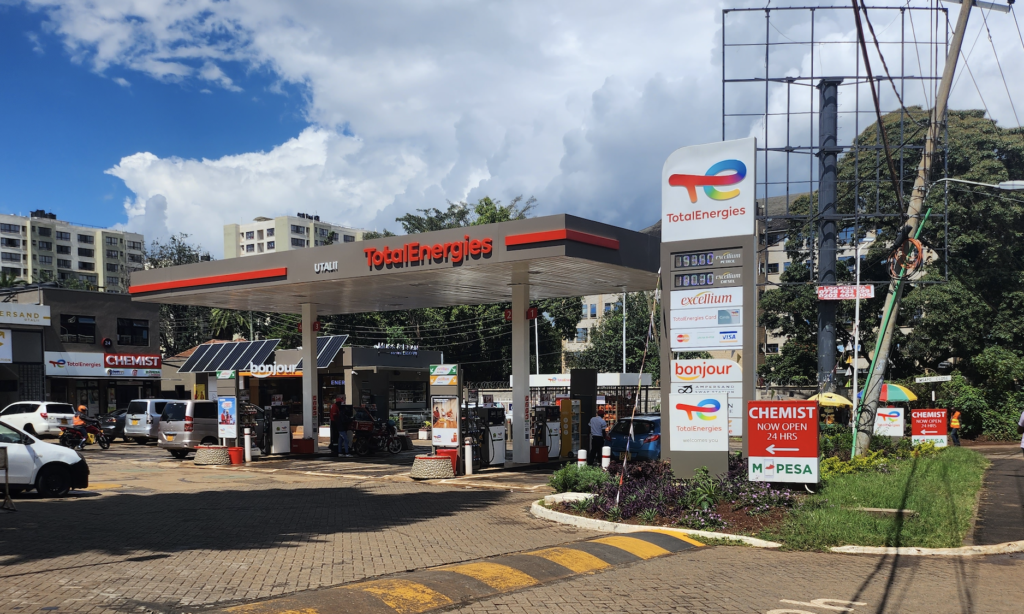The energy sector regulator has reduced the cost of fuel by a significant margin, just ten days after the Central Bank of Kenya (CBK) reported that leading indicators continue to point at a continued strong performance of the economy.
In its monthly reviews, released every 14 day of the month, the Kenya Energy and Petroleum Regulatory Authority (EPRA) on April 14 reduced the cost of diesel by Sh10 per litre, offering relief to mechanised farmers who use the fuel to run equipment for ploughing, planting and watering their crops. This is the planting season in various parts of the country, particularly the breadbasket regions in the Rift Valley, which supply the bulk of the grains consumed locally.
In areas like Narok, which hosts large-scale wheat farms, diesel will cost Sh181.86 per litre, while in Nakuru, which also host extensive maize farms, a litre will cost Sh179.82, slightly lower than Londiani (Sh180.10) and Eldoret (Sh180.59), all of which are agricultural areas and where planting is ongoing.
According to CBK, the first quarter of 2024 recorded robust activity in the agriculture and service sectors, particularly accommodation and food services, and the latest reduction in fuel prices is set to support the trend especially now that schools are on holiday until the first week of May.
Monthly inflation rate
Significantly, the monthly inflation rate, as measured by the Consumer Price Index (CPI) fell to 5.7 per cent in March, compared to 6.3 per cent in February.
This is the first time that inflation has fallen below six per cent since 2022 and since fuel is one of the drivers, the ease is expected going to April. Since March last year, when the inflation rate stood at 9.2 per cent, there has been steady and consistent decline in the cost of living, particularly due to a reduction in the cost of goods like maize flour and vegetables.
According to CBK, the inflation rate for food and non-alcoholic beverages stood at 5.8 per cent, and a further reduction in the cost of fuel — which is also factored in the transportation of farm produce to markets — is expected to lead to a corresponding easing in the cost of food.

Various parts of the country are also experiencing consistent rains, with the weatherman saying in a notice earlier in April, that the pattern was expected to extend over the next four weeks.
“Heavy rainfall events are likely to occur in some parts of the Highlands East and West of the Rift Valley, the Lake Victoria Basin, the Rift Valley, the South-eastern lowlands, the Coast, North-western and North-eastern Kenya,” said the Kenya Meteorological Department.
- Why fuel in Tanzania is cheaper despite similar tax bands as Kenya’s
- MP moves to repeal punitive colonial law on ‘idleness’
The rains, and the lower cost of diesel, is expected to boost agricultural productivity in these regions.
A drop in diesel prices is also expected to ease the cost of electricity given that 14 per cent of electricity generated in Kenya is from diesel-powered plants, also known as thermal power producers.
Meanwhile, the reduction in the cost of kerosene by a whopping Sh18 per litre is also expected to offer relief for poor urban families that rely on the fuel for cooking and for their rural counterparts who use it mostly for lighting.
Fuel adulteration
However, the lower cost of kerosene increases the danger of fuel adulteration because rogue dealers sometimes mix kerosene and diesel and sell it to unsuspecting motorists as diesel, thus compromising the quality of vehicle performance while also contributing to increased pollution arising from poor combustion.
“The authority wishes to caution petrol station dealers that it is an offence to store or offer for sale adulterated or export-bound petroleum products,” EPRA warned on Monday, April 15. “The authority shall not hesitate to revoke licenses of petroleum dealers found to have committed such an offence.
EPRA also reduced the cost of petrol by Sh5 per litre, a move that could lead to increased fuel consumption due to the school holiday season as motorists take advantage of the lower prices to travel upcountry.
One petrol station attendant, Ms Rose Njenga, who works at the Total Utalii station in Parklands, Nairobi, told the Nairobi Law Monthly that the new fuel prices that EPRA announced on Sunday, April 14 had led to a slight increase in the number of customers buying fuel at the station.
“We have seen some improvement in the number of customers that we serve on a daily basis, even though today is the first day,” she said.
“We expect the number of customers to increase in coming days”.
However, one entrepreneur in the sub-sector, who requested anonymity, said business was still tough for oil marketers despite the latest price review.
Additional reporting by Silas Apollo.



